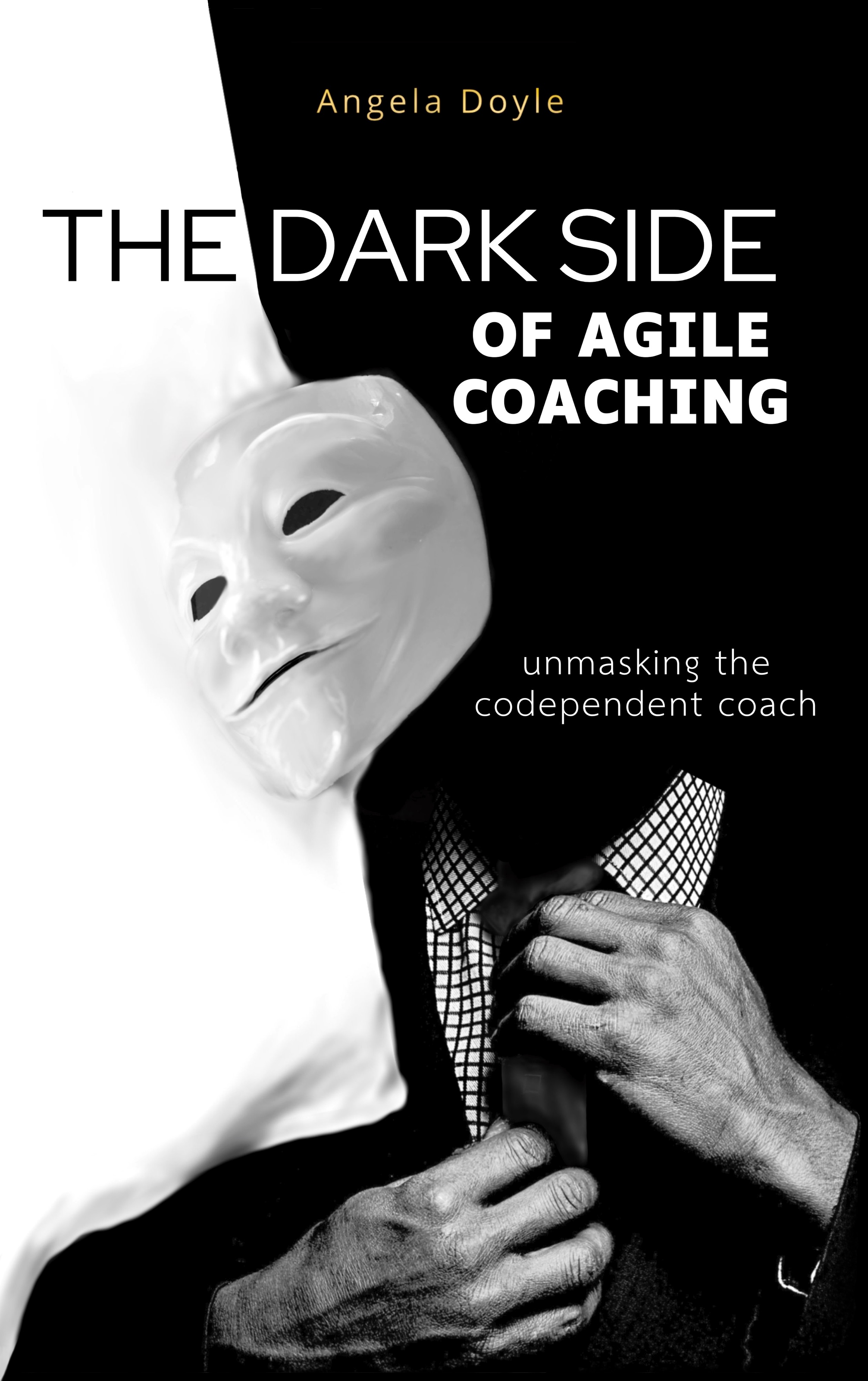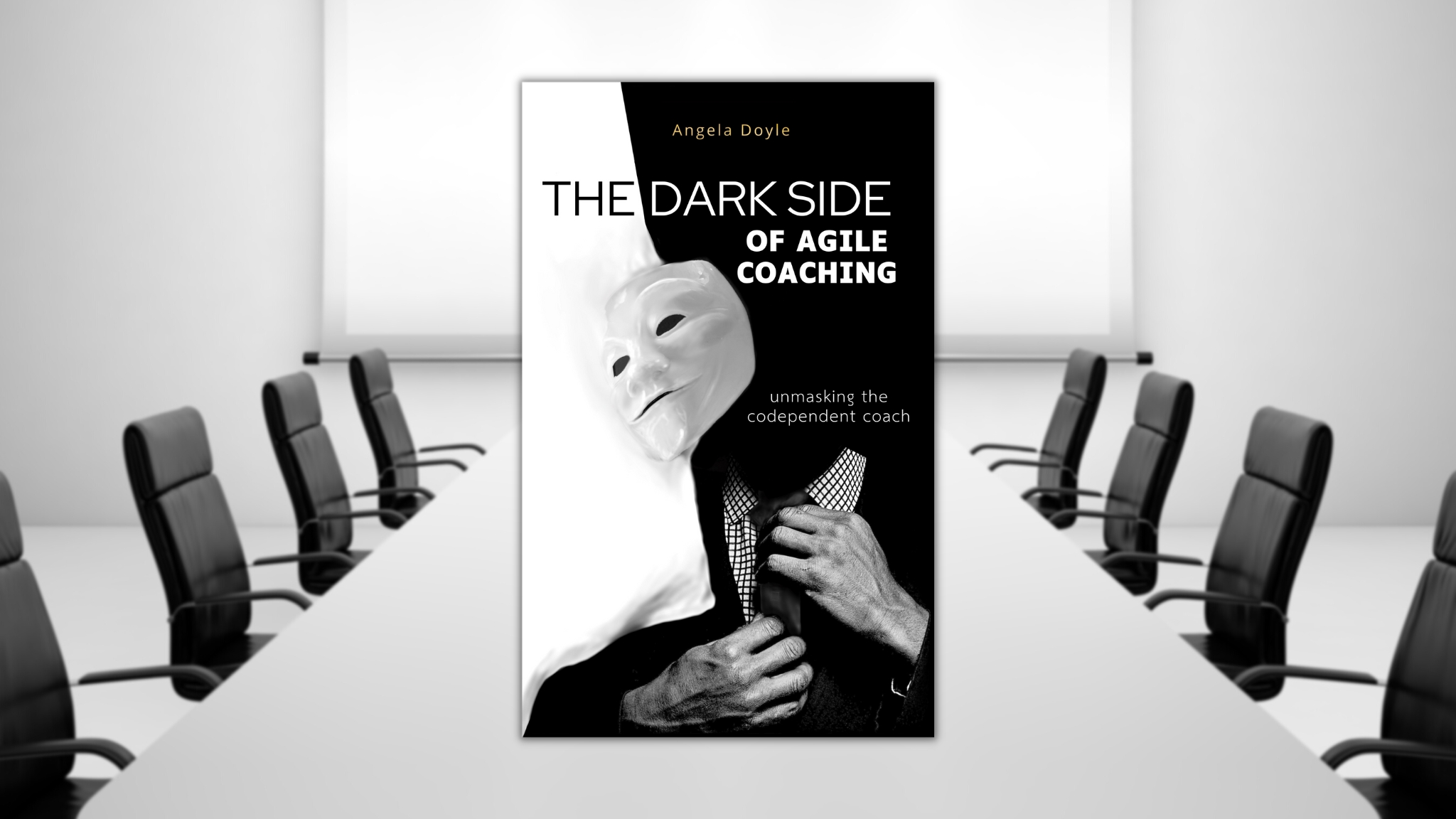The Dark Side of Agile Coaching: Unmasking the Codependent Coach by Angela Doyle
On the surface, the idea of business and organizational agility management practices — centered around empowering teams to experiment, collaborate and adapt in a dynamic world — seems like a can’t-miss initiative for any corporation. It’s validated by the fact that more than 25,000 agile coaches exist in the United States alone to help guide the enterprise to their agility goals.
Yet, all is not perfect in the agile universe.
In her short and concise new book, The Dark Side of Agile Coaching: Unmasking the Codependent Coach, Angela Doyle, an enterprise executive coach in her own right, exposes shortcomings in the agile coaching profession. These are cautionary signs that corporations and coaches should be aware of, and she provides a roadmap on how to support the transformation to keep the focus on agile values and principles that support the organizational goals.
Potential Problems For Agile Coaches
Doyle does a masterful job of explaining the concept and laying out the problem. She identifies key characteristics of anti-patterns, such as the so-called codependent coach, and sets the framework for overcoming barriers to effectively serve businesses seeking such organizational change.
“Agile coaching has the power to unlock the full potential of teams and organizations,” writes Doyle. “However, it can slip into anti-patterns such as codependency that jeopardize its very existence.”
In the prologue, she introduces a fictitious character, “Tom Can-Do, the Agile Coach.” While Tom is passionate about agile practices, he struggles with a fear of conflict, insecurities about his own value, and a tendency to excessively control the team’s opportunities to become self-organized and cross-functional.
Due to these insecurities, Tom is reluctant to let go and empower the team to learn and experiment independently, thereby stifling the very purpose for which he has been hired in the first place. Agile encourages experimentation, collaboration and learning from failures and feedback.
Clear Path Toward Healthy Relationships
The book carefully explains codependent characteristics in the context of agile coaching that can make a coach vulnerable — for example, a persistent need for validation and the fear of failure. As one can guess, the outcome of such behavior impacts team growth, autonomy and innovation. In addition, this can create a culture of dependency, frustration, and demotivation among the teams and across the organization.
However, Doyle doesn’t leave the readers in the cold; instead, she offers a clear path for cultivating healthy coaching relationships. This path entails, among other things, flexibility, respect, active listening and posing powerful questions rather than offering immediate solutions and advice.
Plenty of Valuable Nuggets of Information
For an information-packed look at a business practice that is gaining momentum but not without its challenges in our ever-evolving business and technology landscape, The Dark Side of Agile Coaching: Unmasking the Codependent Coach is a must-read. It is a fast yet comprehensive analysis for anyone intrigued by the mechanics of the business world and certainly for those living in it. With insights from a veteran executive coach and a distinguished expert, readers will find plenty of valuable nuggets.
“Agile coaching is not about playing the superhero but rather nurturing the inner hero within each person,” Doyle writes. “Awareness leads to growth, and reflection lights the path to true transformation.”
This book can be purchased here.
About Angela Doyle:
 Angela Doyle, M.A., is a professionally accredited enterprise executive coach, internationally recognized in supporting globally distributed teams and organizations. She is a trusted thought leader in the field with over a decade of experience in coaching teams and organizations toward agility.
Angela Doyle, M.A., is a professionally accredited enterprise executive coach, internationally recognized in supporting globally distributed teams and organizations. She is a trusted thought leader in the field with over a decade of experience in coaching teams and organizations toward agility.
As a professional business coach, she has witnessed the transformative power of agile values and principles firsthand. Angela’s unique ability to blend her deep theoretical knowledge with real-world insights has earned her a reputation as a sought-after mentor and coach. Visit www.inoatar.com.






